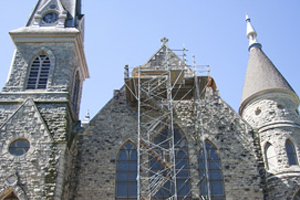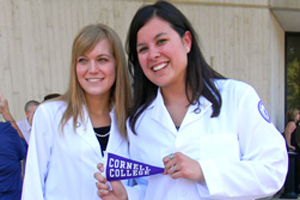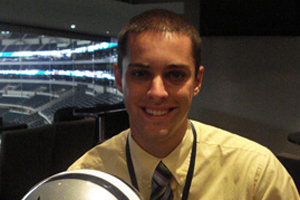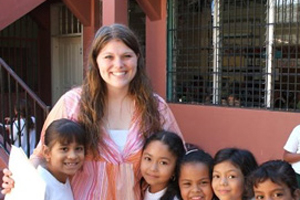One road trip ends, hundreds more begin
When Cornell Trustee Jim McWethy ’65 was shopping for a college, it was by no means the intensely researched and academically competitive world of today. McWethy ended up at Cornell after looking at a few colleges with his parents, with Cornell the last stop on what had been a long road trip. Fatigued, and a self-described “annoying kid” at that time, McWethy said to his mom and dad, “This place looks OK. I’ll go here.”
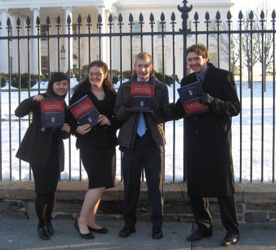
McWethy may have chosen Cornell by the dartboard method, but Cornell and its always incomparable liberal arts curriculum taught him how to land a bulls-eye with ideas, especially ones that show a keen understanding of what today’s college students need to survive and thrive.
McWethy funded McWethy Hall, home of the art department. He chose that project, he said, because it was something that would touch every student.
But McWethy, a seasoned businessman, pictured another gift that would parlay business and economics lessons from a textbook into tangible student experiences. When approached for a $5 million gift to create a program like Dimensions, but for economics, McWethy’s yes came quickly.
He named it for his grandfather, Lester Berry, who grew up hardscrabble in New York City, started a business only to lose it to the Depression, and then came barreling back to build the Berry Bearing Company, one of the most successful companies of its kind.
“He would get a kick out of what we’re doing through the Berry Center,” McWethy said.
For students studying economics, the Berry Center for Economics, Business, and Public Policy offers opportunities that mirror those of Dimensions. Before the Berry Center, the economics department was already rich in faculty talent and energy, but lacked the time and resources to move to the next level.
“We were concerned that we could be doing more to bridge the gap between theory and practice,” said A’amer Farooqi, professor of economics and business and director of the Berry Center.
Today, no gap, just a well-traveled bridge.
Take, for instance, Eli Wade-Scott ’10 who in 2009 was on a trip to Washington, D.C., sponsored by the Berry Center and Dimensions, to meet key policymakers involved in the H1N1 response.
The D.C. trip gave Wade-Scott a targeted career direction. “I am thinking both government and public policy interest attorney. I’m going to law school, and I’m probably going to end up working for either the government or a firm that does public interest work,” he said.
Wade-Scott also had a Cornell Fellowship with United Way. And as an aspiring lawyer, he immersed himself in the still-green Mock Trial Program, part of Cornell’s beefed up Pre-Law program that now offers career mentors, advisors on campus, and meet-and-greets with guest lawyers from the working world.
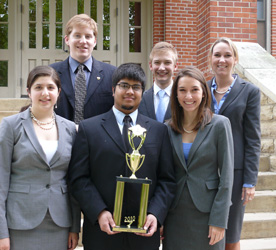
There, law school applications are tackled, and networking is achieved. But it’s the Mock Trial team that has become the rising star. Though started only five years ago, Cornell took sixth place this year in a national Mock Trial competition, beating schools like Yale.
“It was absolutely stunning for us and the mock trial community. They were not ready for Cornell College to take over, but we did,” Wade-Scott said.

